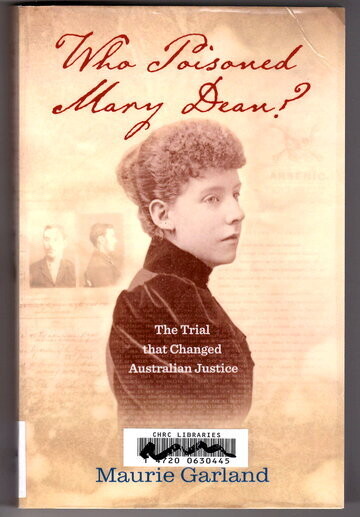Who Poisoned Mary Dean?: The Trial That Changed Australian Justice by Maurie Garland
Book Description
Secondhand.Very good condition. Ex library copy with external stickers removed. Protective plastic covering. Date stamp on inside page. Book is clean and binding intact.
In Colonial Sydney 1895, forensic evidence clearly showed that twenty-one-year-old Mary Dean had suffered non-fatal arsenical poisoning.
Husband George was arrested on the very day of their first wedding anniversary. The Attorney-General personally led the prosecution at George's trial before Justice Windeyer (known as the "Hanging Judge") and attempted murder was a hanging offence.
Yet no one who knew ferry captain George, sober and diligent, could believe he was guilty. Was Mary's mother with her criminal past a possibility? Was it conceivable that Mary could have ingested arsenic herself?
George's trial, the public meetings and the Royal Commission that followed would rivet the attention of all of Australia as crucial questions about the roles of judges, lawyers and witnesses in trials were examined, trying to determine what constitutes a fair trial.
And when the question of who poisoned Mary was finally answered, trials for perjury and conspiracy ensued, a witness committed suicide, and a lawyer was disbarred.
The question of who poisoned Mary Dean changed the Australian justice system.

